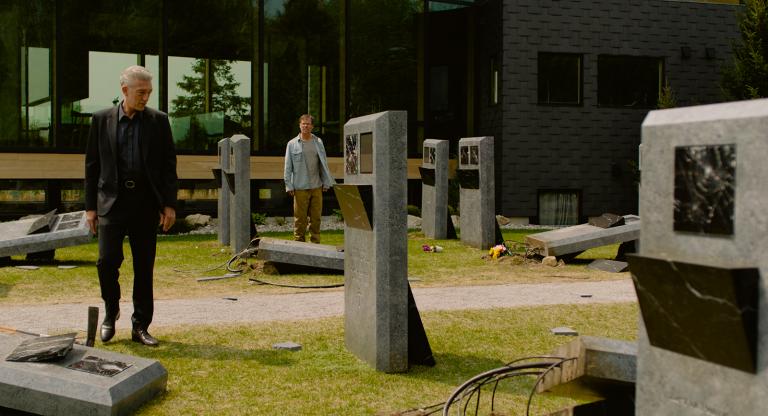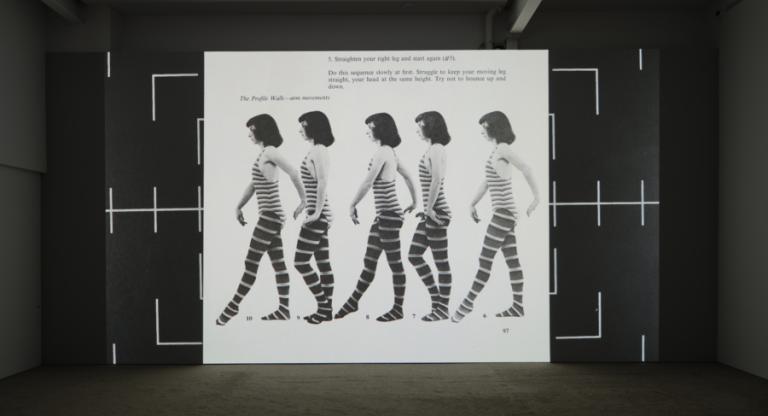Based on Roland Topor’s short novel Le Locataire chimérique, and shot in muddy browns and grays by cinema’s greatest cinematographer, Sven Nykvist, The Tenant is considered the final film of Roman Polanski’s “apartment” trilogy after Repulsion and Rosemary’s Baby. The Tenant reworks and magnifies the obsessions of the earlier films while heightening the comedy, thanks to an idiosyncratic lead performance by Polanski himself as the mild-mannered bureaucrat Trelkovsky, a Polish-born French citizen who moves into a new apartment and is eventually driven mad by “a plot so incredible that I can hardly tell you.” Polanski plays a persecuted Polish Jew but then constructs a film which is a precarious meditation on insanity, refusing to draw a distinction between persecution and paranoia, and blurring the line between tragedy and comedy as its most horrifying sequences are played for laughs.
Trelkovsky’s new apartment, it turns out, isn’t exactly vacant. The previous/current tenant Simone Choule threw herself out of the apartment window and “she’s not dead yet, though she might as well be,” the concierge (a contemptuous Shelley Winters) tells Trelkovsky, before assuring him “don’t worry, she won’t get better.” Trelkovsky visits Choule in the hospital and upon seeing him, she lets out a piercing howl before dying. Trelkovsky gets the apartment, but is at once besieged by all manner of malevolent neighbors andbizarre conspiracies. Trelkovsky, already a cipher, becomes more withdrawn and starts to unravel. His apartment is robbed, and his few mementos from his past are taken from him. Soon enough, he is smoking Choule’s brand of cigarettes, wearing her clothes and convincing himself that the neighbors are plotting to turn him into Choule and drive him to suicide.
Trelkovsky’s otherness is made clear. His new neighbors are xenophobes who go out of their way to mispronounce his name and he must repeatedly insist that he’s a French citizen. Seeing Polanski, an awkward figure in the center of a big-budget film, surrounded by sneering caricatures (washed-up Hollywood pros, and haphazardly dubbed french actors, which heighten the film’s alienating effect), it’s easy to sympathize with him. Yet Polanski’s complex performance introduces contradictions. For somebody so timorous, Trelkovsky often finds ways to assert himself, albeit always with apologies; he successfully haggles with obstinate landlord Monsieur Zy over the price of the apartment, and he invites his boorish co-workers, whom he actively seems to dislike, to have a loud party in his apartment immediately after he moves in. There are suggestions that Trelkovsky is guilty of something. He claims to be a friend of Simone Choule’s when he visits her in the hospital, then later says “I’m not a friend of hers at all.” He goes to her funeral and hallucinates that the priest’s sermon is a condemnation of him alone: “Creeps like you, full of the basest vice, yearning only for carnal satisfaction…what are you doing here in my temple?” And yet he is in fact surrounded by hostility and he witnesses incomprehensible things. Rational explanations are always provided but they seem insufficient: does a passing comment about a neighbor “struck down with paralysis” really explain why Trelkovsky sees people standing motionless for hours in the bathroom across the way? The film legitimizes its main character’s fears while undermining his credibility and suggests every possible interpretation, leaving the audience as paranoid as Trelkovsky.
Both Polanski and Topor are Polish Jews whose lives were upended by World War II. Polanski’s mother died in Auschwitz, and Polanski survived the war by posing as a Catholic. Polanski seems to plumb these depths gleefully in The Tenant. There are lists and petitions that people are either forced to sign or wind up on; repeatedly, characters threaten that they “know the superintendent of police,” what might be assumed to be simple bluster until the police chief actually materializes to berate Trelkovsky: “I’ve heard a good deal about you, Trelkovsky. Is that a Russian name? It’s no use playing innocent.” Monsieur Zy warns him that “once someone gets involved with the police, they are always looked on with suspicion – especially if they’re not French.” A co-worker marches to militaristic music after berating a meek neighbor in front of Trelkovsky in order to teach him a lesson in assertiveness. Three times, Trelkovsky passes a mysterious and sinister poster with imagery redolent of a concentration camp. At one point, someone suggests that to deal with an unwanted neighbor, they should “drill a hole in the wall and force gas into it.”
Repeatedly, characters say that they “don’t understand” suicide or why Simone “would do something like that.” As Trelkovsky drifts toward his own demise, his motives remain similarly beyond comprehension. His transition from a benign milquetoast to raving lunatic is sudden and jarring, and the specifics of the conspiracy he imagines are ludicrous and appear to be willfully misdirected. The film departs from its thematic fixation on the holocaust and veers into comic absurdity instead; for Trelkovsky, this madness is more benign and comprehensible than a more horrifying truth. Just because they’re out to get you, it doesn’t mean you’re not paranoid.



